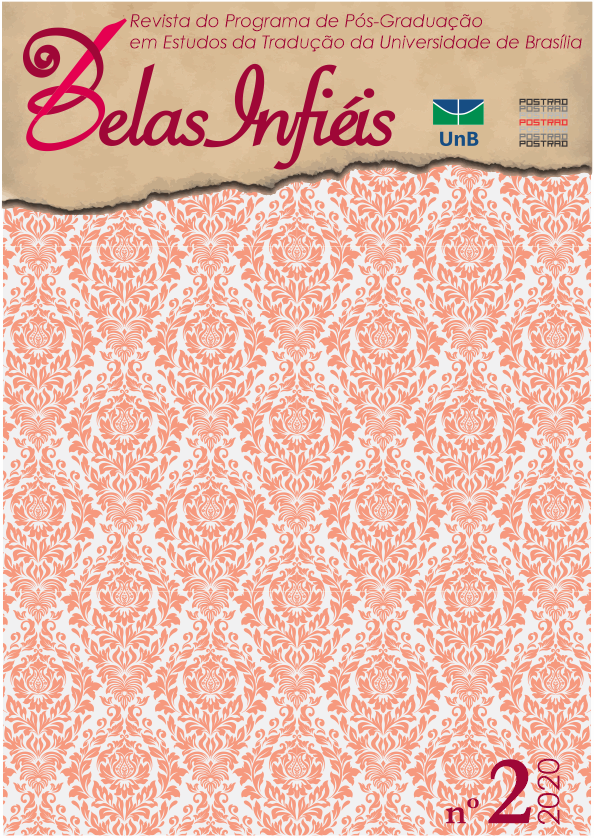Catullus 64: a proposal of poetic translation
DOI:
https://doi.org/10.26512/belasinfieis.v9.n2.2020.27246Keywords:
Dactylic hexameter in portuguese. Catullus. Poetic translation. Classical poetry. Latin meter.Abstract
This translation aims to recreate the metrical composure of an excerpt of the Catullus 64, an epyllion by the Latin poet Gaius Valerius Catullus, by ways of applying the rules of classical poetic meter in Portuguese and ascribing values and stress to syllables and words. This particular poem is an epithalamium, a song written to be read at a wedding ceremony, whose main characters are Peleus and Thetis. The extract chosen depicts the abandonment of Ariadne by Theseus, told through ecphrasis, a narrative presented on inanimate objects ”“ in this case, a coverlet with the embroidery that recounts the agonising and vituperating of Minos’ daughter on the shore of Naxos, as she sees her lover absent-mindedly leaving after the victory over the Minotaur, her brother. The original latin meter is the dactylic hexameter, composed by six dactylic feet, with replacements, as the inclusion of spondees. Here, in Portuguese, the verses followed a similar rationale, and it was made an effort to emulate both the epic tone and the musical cadence of the Catullus 64.
Downloads
References
MYNORS, R. A. B. C. Valerii Catulli carmina. Oxford: Oxford University Press, 1989.
Downloads
Published
How to Cite
Issue
Section
License
Given the public access to this journal, the texts are free to use but requires the recognition of the original authorship and initial publication in this journal to be properly stated.
 The journal allows the use of works published for non-commercial purposes, including the right to submit the work to publicly accessible databases. Published contributions are the sole and exclusive responsibility of the author(s).Â



















